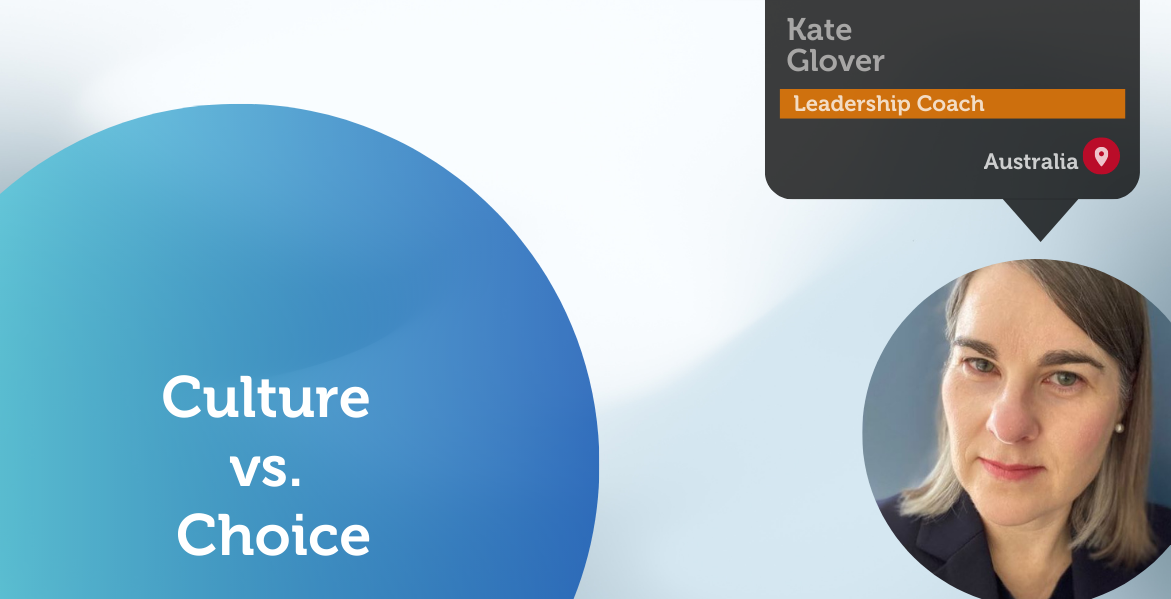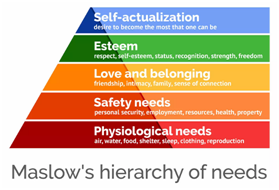A Coaching Power Tool By Kate Glover, Corporate/Leadership Coach, AUSTRALIA

Perspective on Being Liked vs. Disliked
Happiness can exist only in acceptance – George Orwell
Being a self-confessed people pleaser, I will do whatever it takes to please family, friends, and work colleagues. This recently showed up for me when a leader I was working with courageously shared their need to be liked vs disliked. It resonated with me, and it challenged my own thinking in considering the contrasting perspective of being liked vs. disliked.
In the context of an organisational setting, the leader described that they have always strived to be liked which has on occasion clouded their ability to make decisions, and provide clear and direct feedback and that it can be an exhausting way to live. The leader commented that the need to be liked had always been there from the beginning of their 20-year-long career. The leader who was recently promoted into a leadership role had the awareness to notice the limitations this perspective was having on their performance in their new role. As I partnered with this leader, I further understood how the need to be liked vs disliked prevents people from unlocking their full potential and living in a way that is true to their values and beliefs.

The need to be liked can be looked at through Maslow’s Hierarchy of Needs and in particular, stages 3 and 4.
- Stage 3: Love and Belonging – friendship, intimacy, family, sense of connection
- Stage 4: Esteem – respect, self-esteem, status, recognition, strength, freedom.
In essence, stages 3 and 4 describe a fundamental human need for acceptance. It’s no surprise then that we all want to be liked.
What Is the Difference Between Liked vs. Disliked
Why Is Being Disliked So Uncomfortable?
In Roger Covin’s book ‘The Need to be Liked’ he comments that ‘we are hardwired to seek acceptance and avoid rejection. Rejection is a very powerful feeling and for anyone who has felt rejection, it hurts. As humans, we fear rejection because we have this basic need to belong. Rejection is a lonely place which can impact our confidence, self-esteem, relationships, ego, and work. It can also remind us of our most undesirable traits.
What Does It Mean to Be Liked?
Being liked means being desired and being desired is often associated with the feeling of being loved and belonging. In a social setting, it could mean we are accepted by a group we desire to be a part of. The feeling of being liked improves our overall well-being and sense of connectedness to others. It makes us feel good and in turn, improves our confidence and self-esteem.
If you live for people’s acceptance you will die from their rejection – Lecrae
Client Example
When coaching the leader on this perspective, liked vs disliked they described 3 recent events.
First Event: The leader was required to make an unpopular operational business decision. The decision would only favour some team members, not everyone. The leader delayed the decision for several weeks and in the end was unable to make the decision. Since it was an operational decision and required for business operations, the leader’s manager eventually made the decision on behalf of the Leader. The leader described how disappointed they were in themselves and how this reflected on their ability to perform their role.
Second Event: The leader shared a recent example where they were unable to give clear and direct feedback to one of their direct reports who wasn’t performing. The performance issue festered for several more months with the leader receiving increasing negative feedback about this team member. The issue escalated and a formal complaint against this team member was submitted. When the team member was informed of the complaint, they were unaware that their behaviour had been negatively impacting another person. The team member wished someone had told them earlier that their behaviour wasn’t appropriate so they could have had the opportunity to modify their behaviour which may have prevented the issue from becoming a formal complaint. The leader recognised their role in this mess and resented not having the courage to have the difficult conversation and deliver some unpopular feedback. The leader also acknowledged that if they had shown courage this performance issue may have been avoided. The leader spoke about being paralysed and that they had failed to act proactively and to manage responsibly.
Third Event: In regular leadership team meetings the leader noticed that they were much more agreeable and accommodating compared to other leaders within the team. The leader described a reluctance to put forward controversial ideas in these team meetings and that keeping their relationships healthy was extremely important to them. The leader acknowledged that they have struggled to set healthy boundaries in the past, that they aren’t overly assertive and that they will do everything to protect their working relationships.
Limiting Beliefs
Through my discussion with the leader, they were visibly disappointed in the way they had acted in all 3 events. They described feeling that their actions weren’t congruent with their values and beliefs. They described how much they had desperately wanted to please everyone but what occurred was the opposite and they were perceived as:
- A weak leader
- Indecisive
- Ineffective
- Not actually doing the best by others
- Lacking courage
- Lacking boundaries
- Chaotic
- Too accommodating of mediocrity
- Too protective of relationships.
With further exploration and discussion, it became clear that their limiting beliefs centred around:
- The fear of being disliked
- The fear of being rejected
- The fear of not belonging
Being liked, has so much power because it holds the feelings of loneliness at bay – Rollo May
Shifting Perspective
In creating awareness and shifting perspective, these are some of the questions which supported the discussion:
- How is this serving you?
- What is the worst thing that could have happened?
- What is true about this?
- What might have been different?
- What is prompting that thought?
- What would the ideal situation look or feel like?
- What are you afraid of?
- What is it costing you to not set boundaries?
- What would you do differently if you lived every day without fear of the outcome?
- What is your definition of a boundary?
- What are you sacrificing to not have the difficult conversation?
- What stops you from saying no when you are asked to do something you don’t want to do?
- What are some possibilities you can choose now that would serve you?
- What new awareness or learning happened today?
- What is it about you that makes you special to other people and what do they appreciate about you?
What occurred in the discussion was an opportunity for the leader, to safely discuss their thoughts and concerns. The leader acknowledged that the fear to be disliked could keep them stuck in one place, where their behaviours are repeated, ultimately restricting their growth and success. The initial conversation started from a negative perspective and following some discussion and exploration their mood and mindset switched to a more positive and constructive space. The leader started to notice that they cannot control what others think and they started to notice that they have choices rather than being fixed and set. The leader started to see the opportunities available to them to build courage which would support them in overcoming the fear of being disliked. Building courage was important to this leader. This included a discussion around being able to find comfort in situations where rejection, judgement and abandonment may exist. The leader also acknowledged that aiming to please everyone is exhausting and they had the insight to acknowledge that seeking out recognition will never meaningfully fulfil you.
As the conversation progressed, there was an obvious shift in the leader’s body language, and they felt for the first time that they had a pathway to move past their limitations. They flipped the negative perspective into a space of opportunity and growth. We spoke at length about acting in a way that feels right rather than acting in a way to please others or acting in a way because we fear what might happen. There was also a discussion about relationships and that it is OK for people to disagree. The leader had an ‘aha’ moment when they recognised that this change in perspective opened the door for healthier relationships with their work colleagues and more importantly themselves.
How Do You Use Liked vs. Disliked
Working through this topic with someone was interesting and whilst their examples were not mine, I shared a lot of their feelings, thoughts, and beliefs.
As the famous philosopher Marcus Aurelius wrote,
Our life is what our thoughts make it
In life, we cannot control what others think of us and we will all have moments where we are disliked. It is how we choose to see that moment and what thoughts we choose to believe in that will determine how we live our life. Getting to know your true self and living by your true self takes courage. If the leader had had the courage to make an unpopular decision, have that difficult conversation and set those boundaries they would have been living in a way that was aligned to their true self. Since our conversation, the Leader has demonstrated the courage to grow, change and move past their limitations of being disliked.
Do not trade your true self for approval – anonymous
References
Simply Psychology. 2022. Maslow’s Hierarchy of Needs. [ONLINE] [Accessed 10 July 2022]
Covin, Roger., 2011. The Need to Be Liked. 1st Ed. THE US.